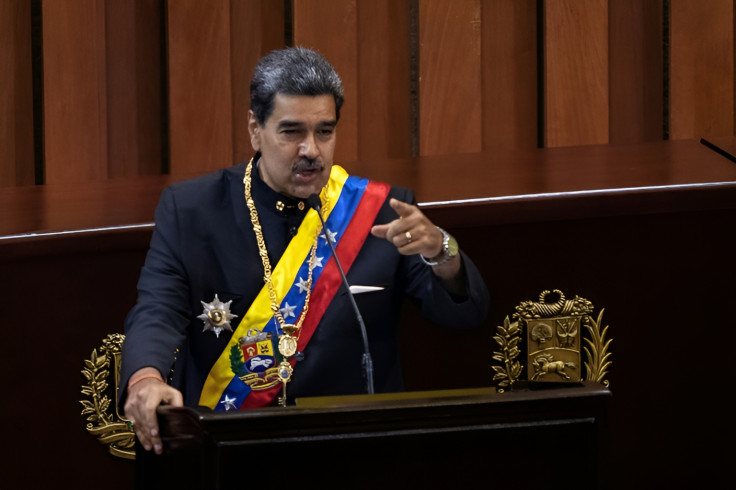
U.S. lawmakers with ties to the Western Hemisphere are increasingly turning their eyes to Venezuela, with the elections are set to take place in a little over a month. With the opposition ahead in the polls and determined to compete, some are warning President Nicolás Maduro will not allow a clean contest.
In this context, a group of Florida lawmakers introduced a bicameral resolution to "condemn the Nicolás Maduro Regime's attempts to steal elections in Venezuela."
The resolution is backed by five lawmakers, four Republicans and a Democrat. Four of them are from Florida: Republican legislators María Elvira Salazar, Carlos Giménez and Marco Rubio and Democratic Rep. Jared Moskowitz, with the remaining one being Republican South Carolina Senator Lindsey Graham.
"As the Maduro regime does everything in its power to steal the presidential election from María Corina Machado and Edmundo González, we in the United States Congress stand strong against his tyranny," said Rep. María Elvira Salazar, chairwoman of the Western Hemisphere Subcommittee.
"I am proud to support this resolution that denounces how Maduro is trying to lie, cheat and steal his way to staying in power. I pray the Venezuelans retake Miraflores in July," she added.
Giménez, on his end, said he was proud to introduce the resolution "to support the democratic opposition in Venezuela and their fight for freedom." "The illegitimate Maduro regime has threatened, intimidated, and silenced its people. With their national elections just a month away, we must condemn their blatant attack on democracy. The Venezuelan people are determined to live in a free Venezuela and the U.S. must help them in their fight for freedom."
Concretely, the resolution "rejects the attempt by the Maduro regime to steal the upcoming elections," "denounces any attempt by the illegitimate Maduro regime to intimidate the Venezuelan people and its democratic candidates through any kind of violence;" "condemns it for "the flagrant and repeated acts of corruption, desecrating the rule of law, and engaging in anti-democratic and criminal acts; and encourages the Administration to impose additional sanctions on Maduro and the coconspirators in his illegitimate regime to ensure they are unable to profit through their illegal and corrupt activities."
Senator Rubio, one of Donald Trump's potential vice presidential picks, also recently published an op-ed in the Miami Herald heavily criticizing President Joe Biden's policy regarding the country, saying he's "appeasing" the Maduro government, something that has "completely and predictably backfired."
Rubio argued that Biden is "naïve" for hoping some concessions would "convince Maduro to halt his aggressive and criminal policies and permit free and fair elections next month."
The international community is looking on what steps the Maduro government takes as the elections loom large. The entire opposition has rallied behind Edmundo González Urrutia, among the few allowed to sign up as a candidate. He has been backed by María Corina Machado, who won a broad primary last year but was banned from competing by the government-friendly Supreme Court. So was her first stand-in candidate, Corina Yoris.
Polls are pointing to an opposition win, with a recent one by ORC Consultores showing González with over 50% of the votes compared to Maduro's 15%.
Some 18% of respondents said they are still undecided, but even if all those votes were to go to the president, he would still be lagging the opposition candidate.
The government has continued cracking down on dissent, again detaining political activists involved with the opposition and even shutting down hotels and restaurants that hosts their rivals.
© 2024 Latin Times. All rights reserved. Do not reproduce without permission.







